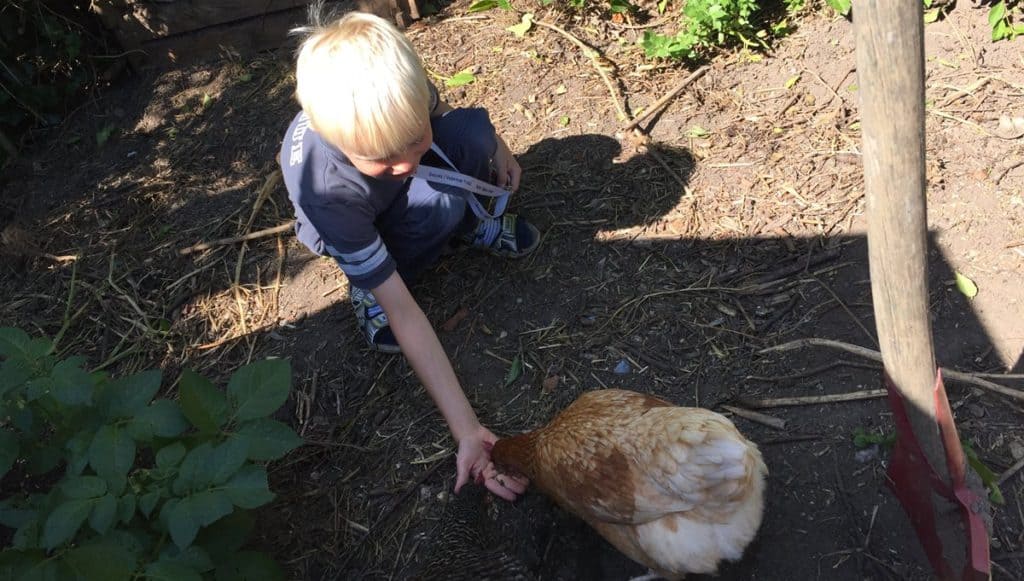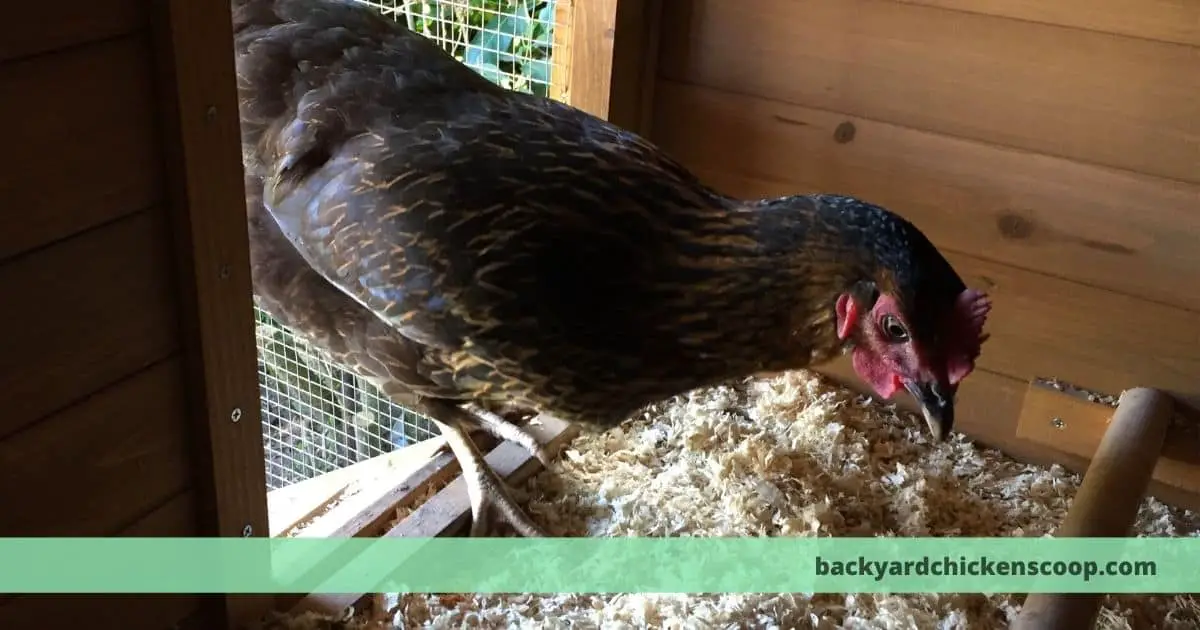Breeding chickens can really be a fun and even profitable business provided you know how to do it the right way. It is not easy and there are many things that should always be kept in mind. There could be many challenges and issues that could crop up when it comes to rearing and breeding chickens.
In this article, I will try to find answers to a few questions that are vital and crucial when it comes to the successful breeding of chickens. I will be focusing specifically on the question as to how to keep chickens from running away.
How do you keep free-range chickens from running away?
Chickens, in general, are friendly and therefore tamable. You can use the same methods of taming that you use for cats and pet dogs.
However, you have to make sure that they are healthy and are fed properly and regularly. If you are able to domesticate and tame them and also ensure that they are made comfortable, there are many chances that they may not run away. However, there are some traits and behaviours about chickens that you should be aware of.
They like to be free and may not like the same kind of taming and domestication that you offer to a cat or a pet dog.
While some breeds of chicken are quite friendly with their masters, caretakers and other human beings, there are many who like to have their own private space and freedom.
1. Avoid scaring them
Hence, you should have a look at the breed of chicken and then find out ways by which they can be prevented from running away. It has been seen often that chickens with large crests are considered to be flighty and are known to run away from coops and their living space.
They can get startled quite easily. This is because they do not have the best eyesight.
2. Use treats
It is therefore important to therefore treat the chickens based on their breeds. However, it has been found that treats could be helpful.
More importantly, you need to understand the importance of patience, kindness and effort. Only these can make any animal friendly as far as human beings are concerned. Chickens are also no exception to the rule.
3. Train them
Try and make chickens eat from your hand. This should be done with baby chicks. It may take some time because they may not be able to understand what this is all about.
After a period of time, many of the little chicks will walk towards your hand to eat the feeds. This will bring in a natural bond and may prevent them from running away.

Will my chickens run away if I let them out?
It may not be easy to give the right reply to this question. However, generally, chickens and even chicks are territorial.
Hence, it is unlikely that they will venture too far away from their comfort zone. However, there are a few things that may have to be kept in mind. If the chickens are encountered or if they come across some predators, it is quite possible that they may start losing their equilibrium.
Their only preoccupation would be to find out ways by which they can escape from the predators. This may often lead them to move away from their comfort zone. In fact, many chicks get lost because of external problems and not because of their behavioural traits.
In case a few of them go astray during the day, almost all of them will come back to roost during the night. This is because chickens by nature are territorial and have a gregarious nature when compared to other birds.
At what age can you let chickens free-range?
You can easily free-range your chicken as soon as they have started feathering. However, there are a few things that you must bear in mind when it comes to free-ranging them. Make sure that the entire area is closeted from all sides. At the same time, the space should not be too small because this will make it uncomfortable for the chickens.
Further, lack of space will also give the chickens no other option but to stay put in a limited room.
This may lead to sickness and illnesses that could be transmitted from one chicken to another. This will leave the owners with no other option but to cull them by the hundreds and thousands. Even otherwise, not allowing a free range could lead to the chickens eating their own droppings or dropping of other chickens. This is a highly dangerous situation and should be avoided at all costs.
It would be a good idea to integrate the younger ones with the grown-up chickens. This will help the little ones to have more confidence. Generally, it is believed that it would be a good idea to let the young chickens go in for free-ranging activities when they are around two to three weeks old.
As soon as they reach this age, it would be ideal to move them from the brooders and ensure that they are in the chicken coop. However, make sure that the outside temperature is at least 50 degrees F (10 degrees Celcius).
Move them to the coop slowly so that the younger ones, who may be just three or four weeks old get the right time to acclimatize themselves to the new weather condition. Also, continue feeding them the same food and do not go in for a sudden change of food.
What time should I let my chickens out?
While early mornings are considered to be the best time to let your chickens out, there cannot be any straight jacketed rule for this. There could be situations where no one is in the home or the coop to take care of the chickens. This could happen during weekends and holidays during Christmas and the New Year.
You must understand the ways to handle chickens when the main people and caretakers are not around. This could indeed be a daunting task.
However, chickens are not difficult birds to raise and rear once the basic routine and set-ups have been taken into account. Even a flock of 5 to 6 hens could be good enough to provide you and your family with enough eggs.
If you are away from the home, make sure that there are a few things. To begin with, always make sure that there is a proper coop. This is because even if the chickens prefer to stay out of their coops the whole, they need to roost and rest and they will for sure come back to their coops.
As far as the daytime is concerned, ensure that you have enough spaces such as pens along with enough food and water so that the chicks can stay around the open spaces. Make sure that the open spaces are well protected and sealed so that the chickens do not face any threat from dogs, wolves and other such predators especially in rural and far-flung areas.
Also, ensure that they are kept away from the road because chickens by nature like to poop and they may end up damaging the roads and you may become responsible for it as the owner of the birds.
Why do my chickens run away from me?
Chickens in general and newborn chicks are a bit reserved and they are also afraid of the outside world. Hence, when they encounter human beings when they are born, they often become panicky.
This could lead to a situation where they may start running away from you. As the owner, you may have a tough time running behind them, catching them and then bringing them back to their coops or pens.
You must try and win over the confidence of the chicks. Chickens over a period of time get habituated to their masters and then it should not be a problem. But this cannot happen overnight and it certainly calls for quite a bit of patience, perseverance and it could take some time.
The young chicks may not know that they are being invited for a feed even if the master holds food in their hands. They have to be practised on this and over a period of time, they will start developing confidence in you as the master. Once this happens, you will not have the onerous task of running behind the chicks and chickens as they try to run away from you.
Treat them with special feeds that they love and relish.
How do I get my chickens back in the coop at night?
As night falls and as the sun sets behind the horizon, as the owners of chickens, your task should be to persuade the chickens to get back to their coops. While most of them love being back to their homes after sunset, there could be a few who could be difficult to tame.
They also could be wayward in their behaviour. In such a situation, it would always be better to lure them back to their coops with food.
Food is a great motivator for all animals and birds and chickens are also not an exception to the rule. However, to avoid the risk of overfeeding and luring them with feed should be to make sure that they come back to their coops for sleeping and resting.
Conclusion
Raising chickens can be fascinating and interesting. There are many things to learn and if you have some other pets like dogs and cats, you also may have some unlearning to do.

